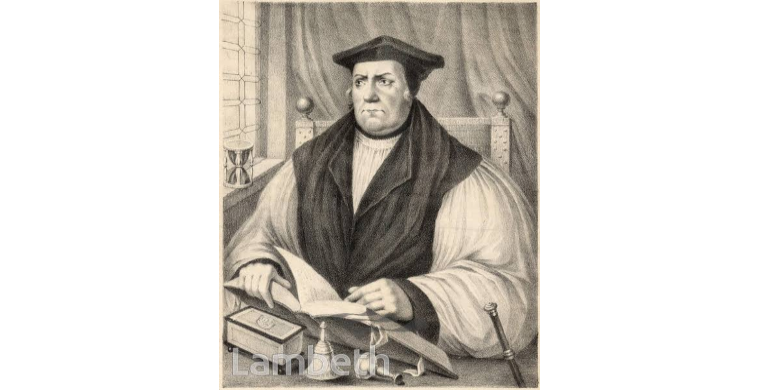Archbishop Matthew Parker
By Dean Chuck Collins
www.virtueonline.org
December 13, 2023
MATTHEW PARKER became the Archbishop of Canterbury in 1559, when bishops and archbishops were teachers: overseers and protectors of the faith of the church universal. Urban Holmes wrote of bishops: "Historically the bishop is the one called to preach. He speaks out of the universal experience of the church. It is the bishop who shall be able to transcend the immediate situation to give us a catholic vision."
Elizabeth I served the newly formed Church of England as its Supreme Governor for over 44 years and she was assisted by three Archbishops who were each remarkable in their own way: Matthew Parker, Edmund Grindal, and John Whitgift. Each of them played different roles in helping Elizabeth set the church in Protestantism.
Parker had earlier been one of Anne Boleyn's chaplains, and then for 16 years (1559-1575) he was the construction manager for what came to be know at the "Elizabethan Settlement." The Settlement fixed the Church of England into an expression of Protestantism that is thoroughly biblical, theologically reformed and confessional, pastorally generous, and liturgically beautiful.
Parker's early biographer (Strype, 1711), in his concluding summary wrote: "I may call him our Churches Nehemiah. For as the Jewish Nehemiah built the walls of Jerusalem in so much opposition, and thereby got himself such everlasting fame. . . so the WALLS of our Jerusalem shall be Archbishop Parker's eternal monument; partly for building them up, chiefly for preserving them, being built, from being thrown down again." With Elizabeth's sometimes-fickle help, Parker saw to it that Thomas Cranmer's Book of Common Prayer (1552) was preserved with very minor tweaks in the 1559 version, supervised the revision of Anglican's confessional statement that was authorized in 1571 as the Thirty-nine Articles of Religion, organized and distributed the Elizabethan book of homilies, authorized and contributed to a new and improved Bible translation (the Bishop's Bible, 1568) that served the church until the King James Version in 1611, and he helped keep the church focused on faith and worship essentials by curbing the more radical Puritans who sometimes called him "the pope of Lambeth." John Jewel expressed the majority view of the English reformers when he called Parker "a holy anchor unto me and others."
When the Tractarians (Oxford Movement) of the 1830's threatened to undo the Church of England's Reformation identity, a group of (mostly) evangelicals in the Church of England countered the attempted coup d'etat by publishing 56 volumes of letters, essays and sermons of the early English reformers (1841-1853).
They named it after Matthew Parker whose Protestantism defined the Church of England and who was a world-renowned collector of early church manuscripts.
These, unfortunately, are the dustiest books in most Anglican and Episcopal seminaries today. The Parker Society publications are now available on-line for everyone to read the inside thinking of Thomas Cranmer, Myles Coverdale, John Bale, John Jewel and many other leaders who had a hand in defining our Anglican heritage.
Dean Chuck Collins is a Reform theologian. He is the author of Reformation Anglicanism














